The futuristic, robotic and emotional ROBO-01 exuded “déjà vu” with some of its exterior and interior design features resembling EVs already on the market, now it’s time to chisel down the unnecessary and the impractical for the production vehicle and work on delivering the promises.
That’s the initial impression I got after watching the livestream of the ROBO-01 unveil, the much-anticipated concept production robocar from JIDU, the newest kid on the block in the Chinese smart EV startup verse.
Coming into the virtual reveal on June 8 dubbed “ROBODAY,” which was delayed by almost two months due to the recent COVID outbreaks in China (the original reveal was supposed to be in April ahead of the Beijing Auto Show, which itself got postponed), expectations were high.
Baidu and Geely team up to create EVs
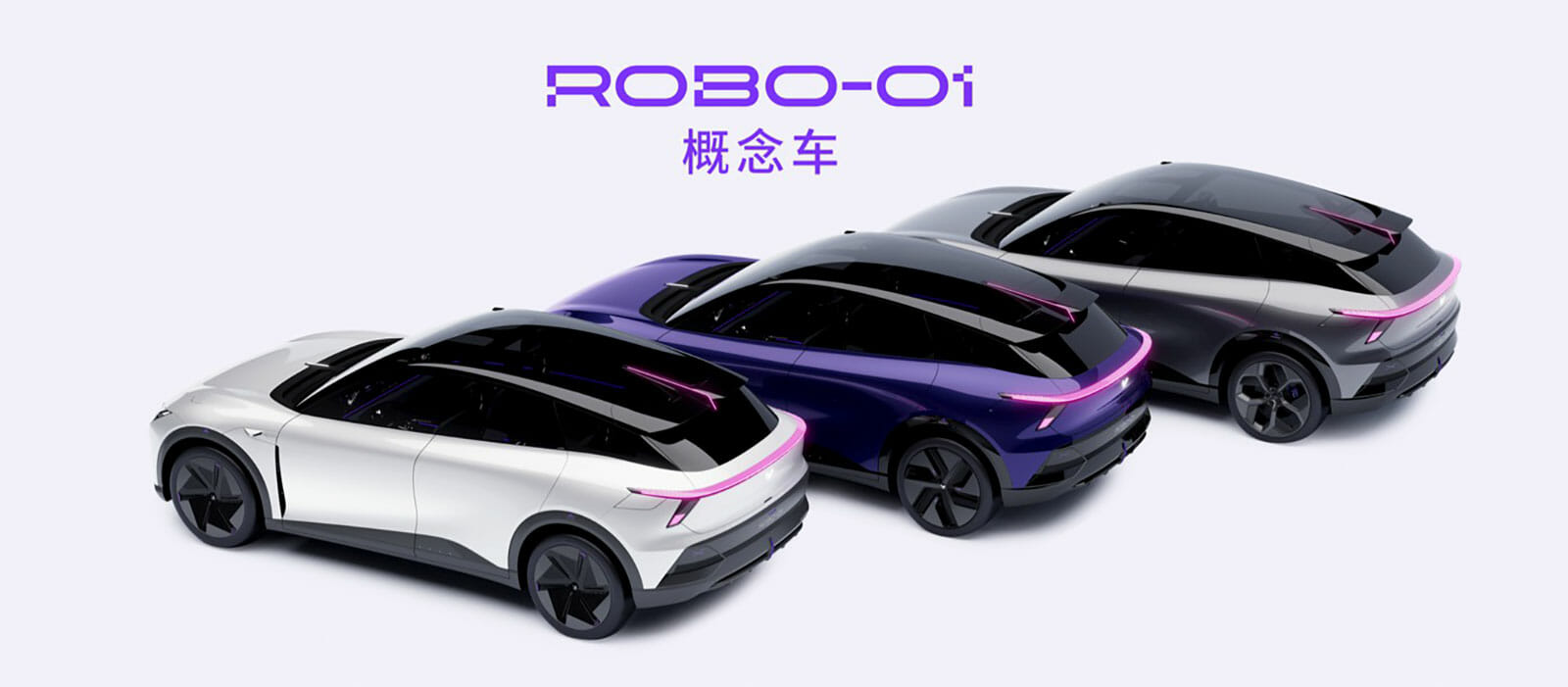
Afterall, the 55:45 joint venture between Baidu and Geely was officially established just 15 months (463 days, to be exact) ago. That’s light speed even by Chinese smart EV startup standards. Customers will be able to order the production version of the ROBO-01 in the second half of this year with deliveries expected in the first half of 2023, according to Baidu CEO Robin Li in a recent earnings call.
“The JIDU car will be much more like an autorobot than any other car on the market,” Li said on that earnings call. “For JIDU, the key point is not being electric, but being intelligent. We believe Baidu is the best in intelligent driving technology, which JIDU will leverage in the upcoming model. So JIDU’s key selling point for the upcoming model will be more on the software side as well as the seamless integration of hardware and software.”
That’s putting a lot of flag poles on the ground.
Both Baidu and Geely are already household names and behemoths in their respective fields in China. One is the country’s leading search-engine, information-centered internet platform and AI company leading the charge in autonomous driving and robotaxis, having recently won the first-ever permits in China to provide driverless ride-hailing services to the public on open roads in Beijing. The other is a new global automotive, tech and mobility empire that continues to balloon: Geely now owns countless automotive brands and companies, recently launched its own satellites into space and is preparing to introduce its own smart phones, having just announced plans to acquire a majority stake in Chinese smart phone maker Meizu through a subsidiary.
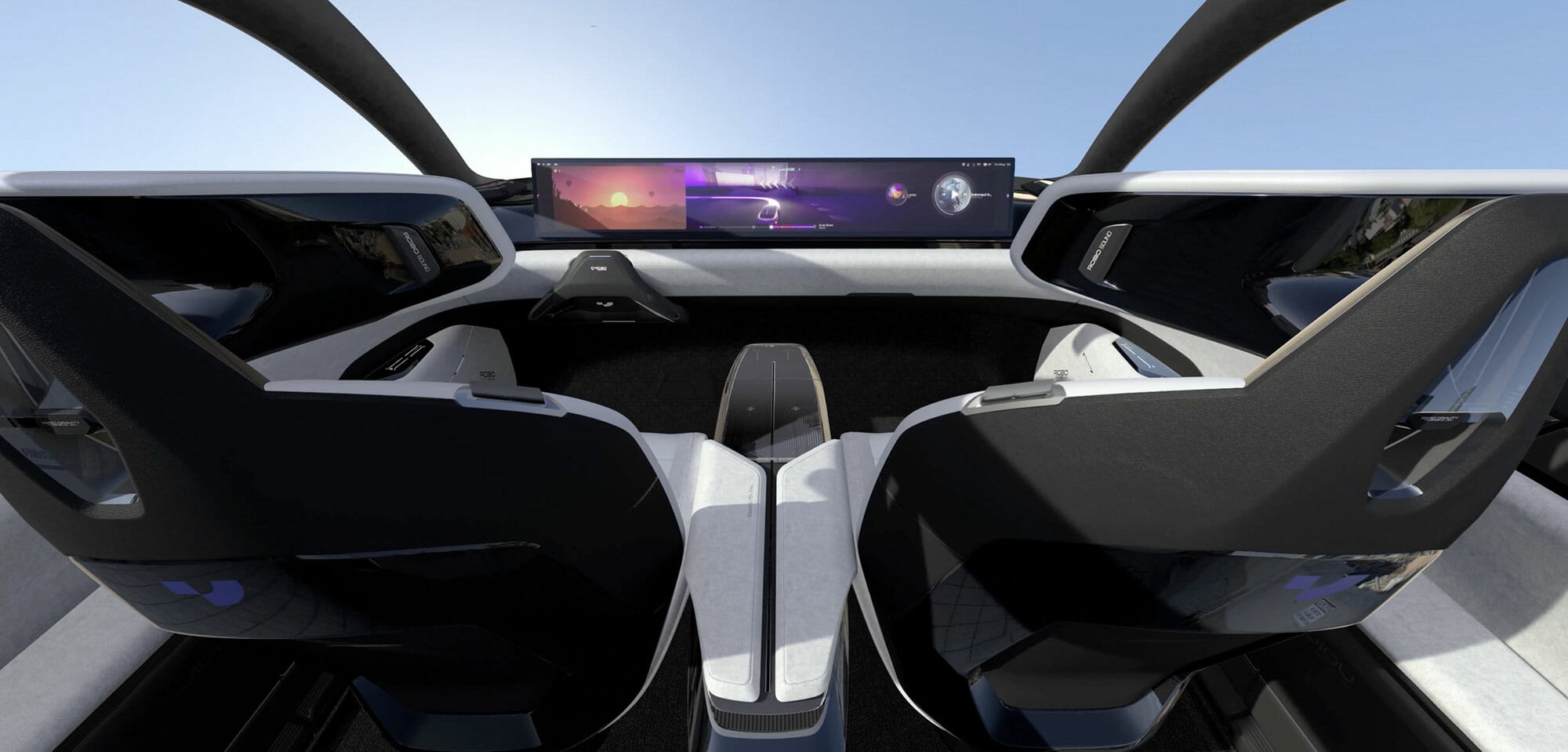
JIDU would make use of Geely’s Sustainable Experience Architecture (SEA), which claims to be the world’s first open-sourced EV architecture with leading hardware/software integrational capabilities, while Baidu would contribute its strong lead in intelligent driving capabilities and its nine years of experience in the intelligent transportation field. JIDU would be equipped with Baidu’s full portfolio of technologies, including Apollo autonomous driving solutions like ANP & AVP, DuerOS for Apollo, and Baidu Maps, among others.
All of these, and the positioning of the ROBO-01 as a “robocar” or “autorobot,” certainly raised industry expectations. “How robotic can it be? Will this be something the industry has never seen before?” I pondered.
Underwhelming reveal but at least job done
As it turned out, the answer was no.
The virtual reveal itself was a bit cheesy, held in Baidu’s own social networking metaverse platform called XiRang, with an avatar of JIDU CEO Joe Xia doing all the presenting. The ROBO-01 even had the first-ever digital human car owner, named Xijiajia, driving and interacting with the concept.
The teaser images before the event had already given away features like the pop-up LiDARs on the hood, zero-gravity seats, ultra-wide display with retractable yoke steering wheel, and AI pixel headlights.
The actual ROBO-01 revealed in its entirety is a nicely designed coupe SUV. I know I said I was underwhelmed, but don’t get me wrong. It’s clean, simple and the side profile/silhouette is one of the best among Chinese smart EVs as far as proportion is concerned, in my opinion.
But here’s the problem: there is too many of them that look alike and it’s difficult to stand out. The narrative on Chinese social media soon turned to “I’ve seen this before.” The ROBO-01 had a front facia and headlight design that resembled the NETA U Pro, a screen akin to the one on the Byton M-Byte that was never conceived and AI pixel headlights that the HiPhi X had already perfected with its Intelligent Signal Display (ISD) and Programmable Matrix Lighting (PML). The butterfly wing doors even got ridiculed by Xpeng CEO He Xiaopeng, who boasted on social media that the same feature found on the Xpeng P7 Wing Limited Edition is now “being widely imitated.”
So this is the underwhelming part for me and not what JIDU would have wanted as a broad initial reaction on social media and from the press. But nevertheless, kudos to JIDU for coming up with the ROBO-01 in just 15 months especially with the COVID outbreak and Shanghai lockdown: it didn’t hit the ball out of the park, but the job got done.
High expectations for the ROBO-01
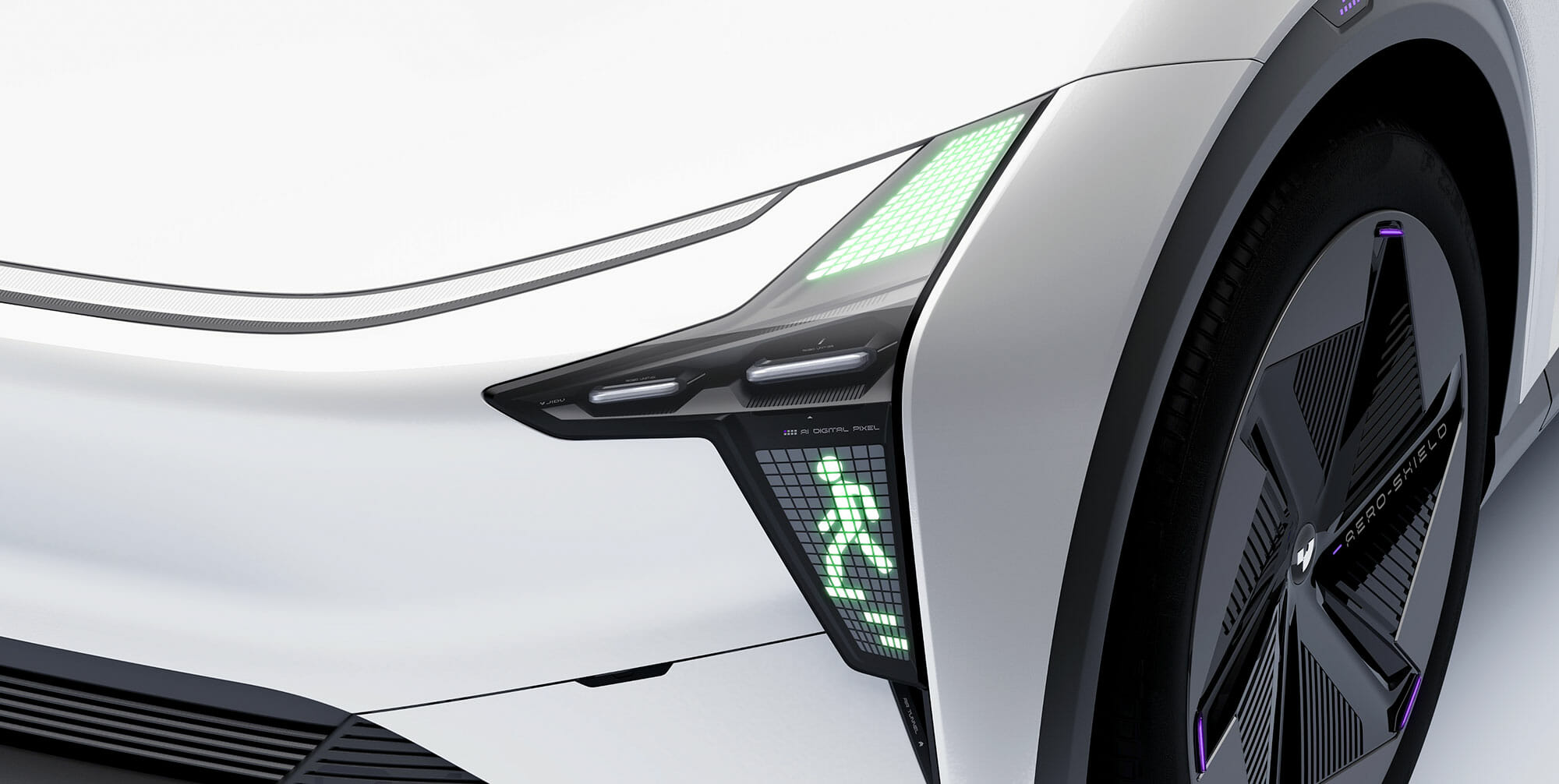
One thing we shall remind everyone, though, is that it is still a concept. The actual production vehicle, according to JIDU, will be 90% like the ROBO-01 and a limited version of that production vehicle will be revealed this fall. I personally think the 10% that will not make it to the production vehicle includes the retractable steering wheel, pop up LiDARs (they will likely go somewhere else and stay stationery), zero-gravity seats and butterfly wing doors. There is obviously the cost side of it for a vehicle that’s going to be priced in the RMB200,000s as Robin Li revealed on the earnings call, but there are also regulatory and safety issues that will not allow those features to make it to the final production vehicle.
The “robocar” or “autorobot” badge for the ROBO-01, representing what Xia refers to as the “Intelligent Car 3.0 Era,” will also likely get some scrutiny. “The Intelligent Car 3.0 Era is the era of robocars,” said Xia at the virtual reveal event. “The transition to this new era is marked by the shift of driving power from humans to AI, with robocars ultimately achieving self-generating progress led by AI. The auto industry in the 3.0 era will see a seismic shift from a revolution in energy to a revolution in product attributes. The ultimate goal is to realize a fully driverless transportation experience. The JIDU robocar aims to meet users’ needs for intelligent travel, in-car intelligent assistance and intelligent cabin in the new era.”
Now that’s a lot of promises.
To fulfill those promises, the ROBO-01 is equipped with some of the latest hardware and software features. It is the first vehicle to be powered by Qualcomm’s 4th generation Snapdragon Automotive Cockpit Platform – the 8295 chip, which will enable the 3D presentation of the screen, meeting users’ needs of driving navigation, game entertainment, online office and other scenarios. It is also offering the so-called millisecond-level intelligent voice response and offline intelligent voice assistant offers “natural and smooth” communication between the user and the vehicle, providing an immersive audio and visual experience.
In addition, the door handle, shift lever, left and right indicator levers and other physical control keys are removed. But I personally think not all of these are going to be gone on the production vehicle.
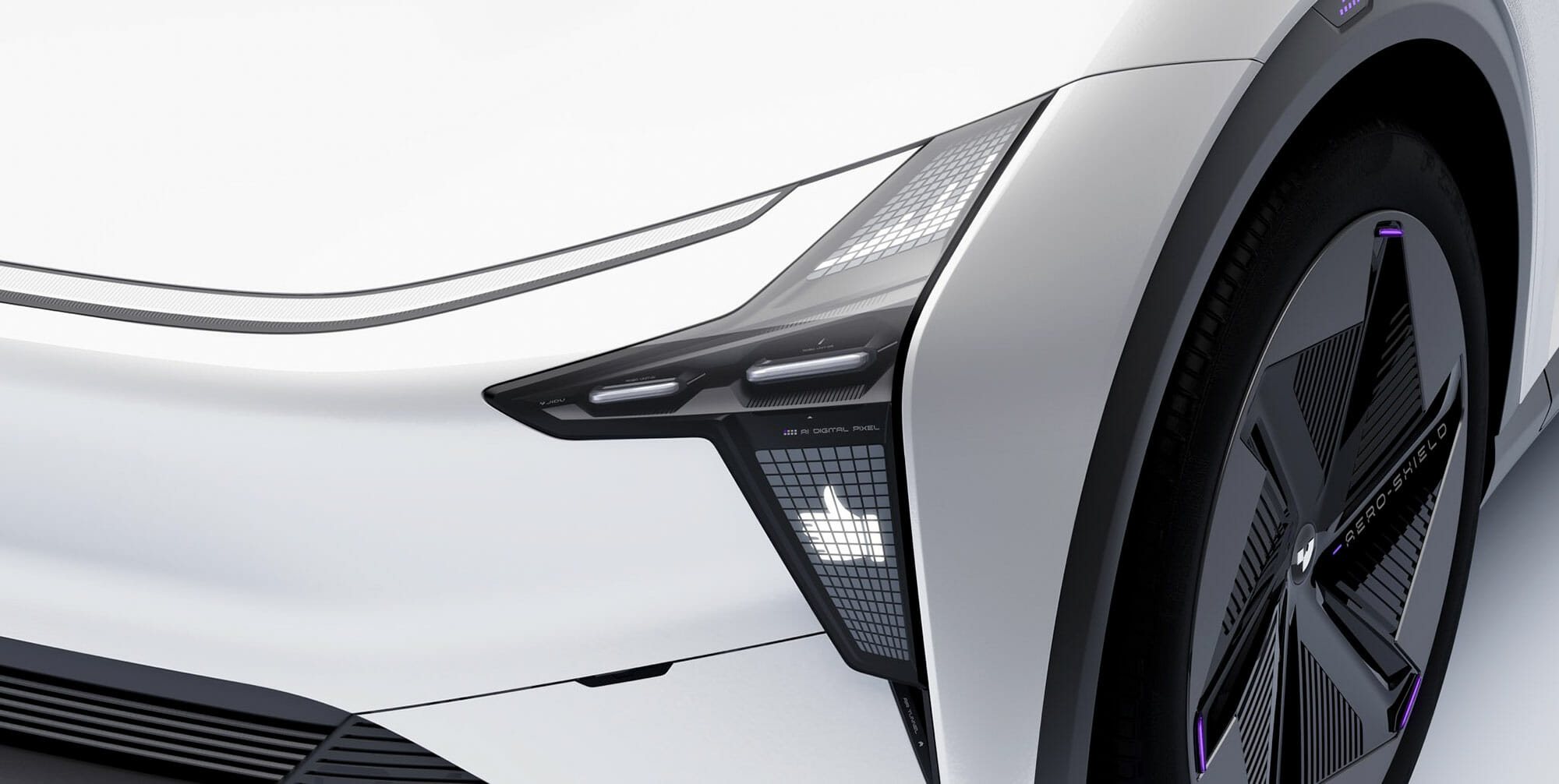
And it can’t be “robotic” without being autonomous, as in advanced autonomous driving capabilities under a wide range of scenarios. To me, this the essence of a “robocar” or “autorobot:” it must be able to drive itself. On that front, JIDU has pulled out all the stops: it claims to be the only smart EV manufacturer to apply the full-stack Apollo autonomous driving unmanned capability and safety system, which is equipped with NVIDIA’s dual Orin X chips and 31 external sensors including the two LiDARs. Based on JIDU’s self-developed SOA cabin-driving fusion technology architecture, the industry-leading “true redundancy” solution for advanced autonomous driving is created by its technological innovation of dual systems for redundancy. The solution has been successfully tested and run on the JIDU SIMUCar (software integrated simulation vehicle), which has verified the safety and stability of JIDU’s advanced autonomous driving system for mass production.
Capable of point-to-point advanced autonomous driving, JIDU’s system can adapt to three main driving scenarios: high-speed, urban roads, and parking. “The system has tested and verified ability to handle unprotected left turn, traffic light recognition, obstacle avoidance and freeway on/off ramps,” says JIDU’s official press release. “Users will be able to access these and other advanced autonomous driving functions from the moment they begin driving, providing unprecedented convenience and versatility.”
Another set of flagpoles on the ground.
To me, what JIDU is promising for the ROBO-01 in terms of autonomous driving capabilities are nothing more than what Tesla is trying to do with FSD or what many of the Chinese smart EV startups are trying to achieve: all scenario advanced driver assistance features that are still primarily Level 2 because the driver still must pay attention even though the car may be doing the driving.
The expectations for the ROBO-01 is high, and JIDU’s got the DNA of two of the best automotive and tech companies out there. Now, it’s time to chisel down the unnecessary and the impractical for the production vehicle and work on delivering the promises.
Report by Lei Xing

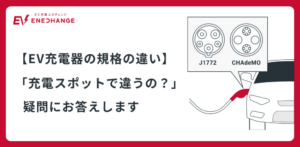


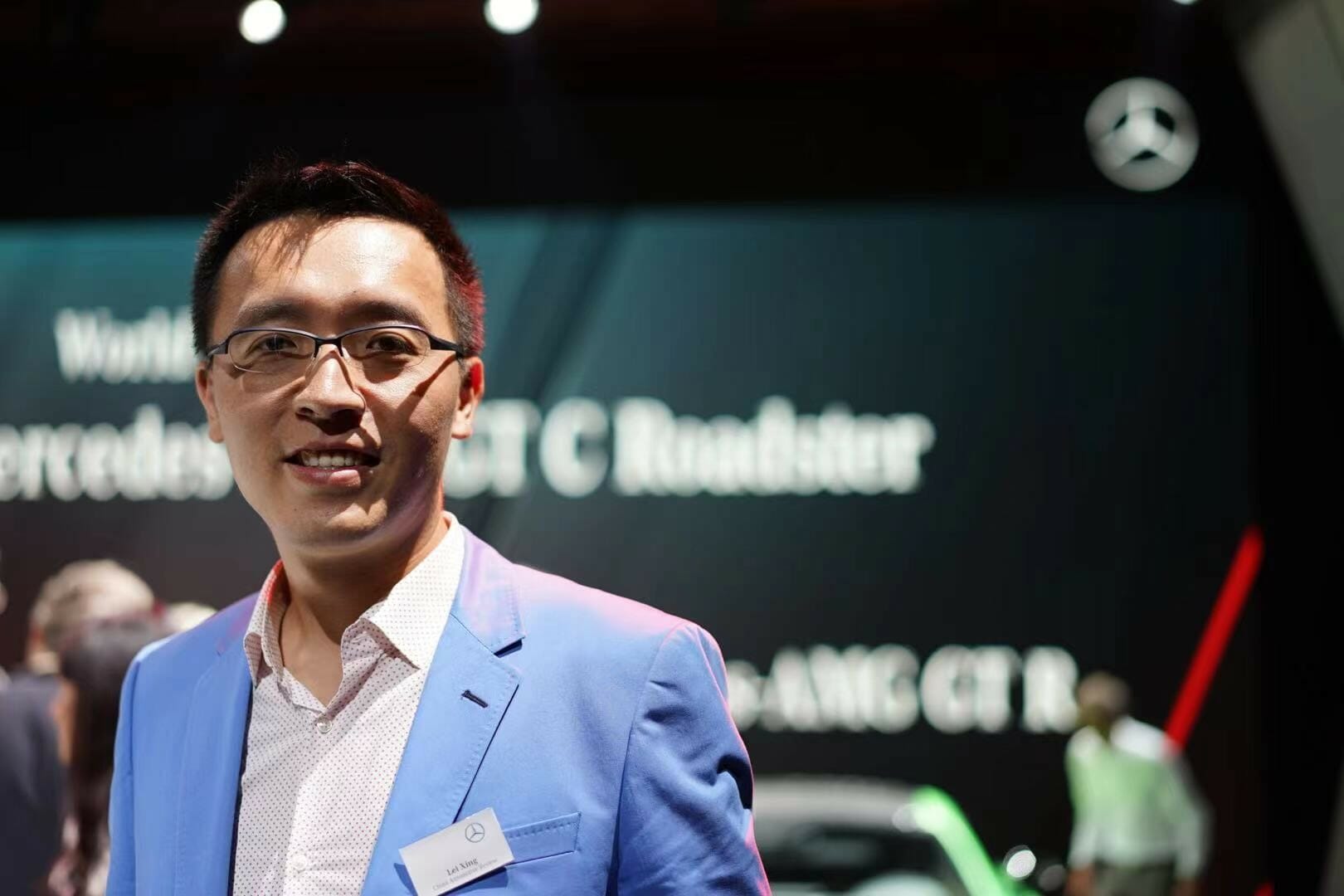
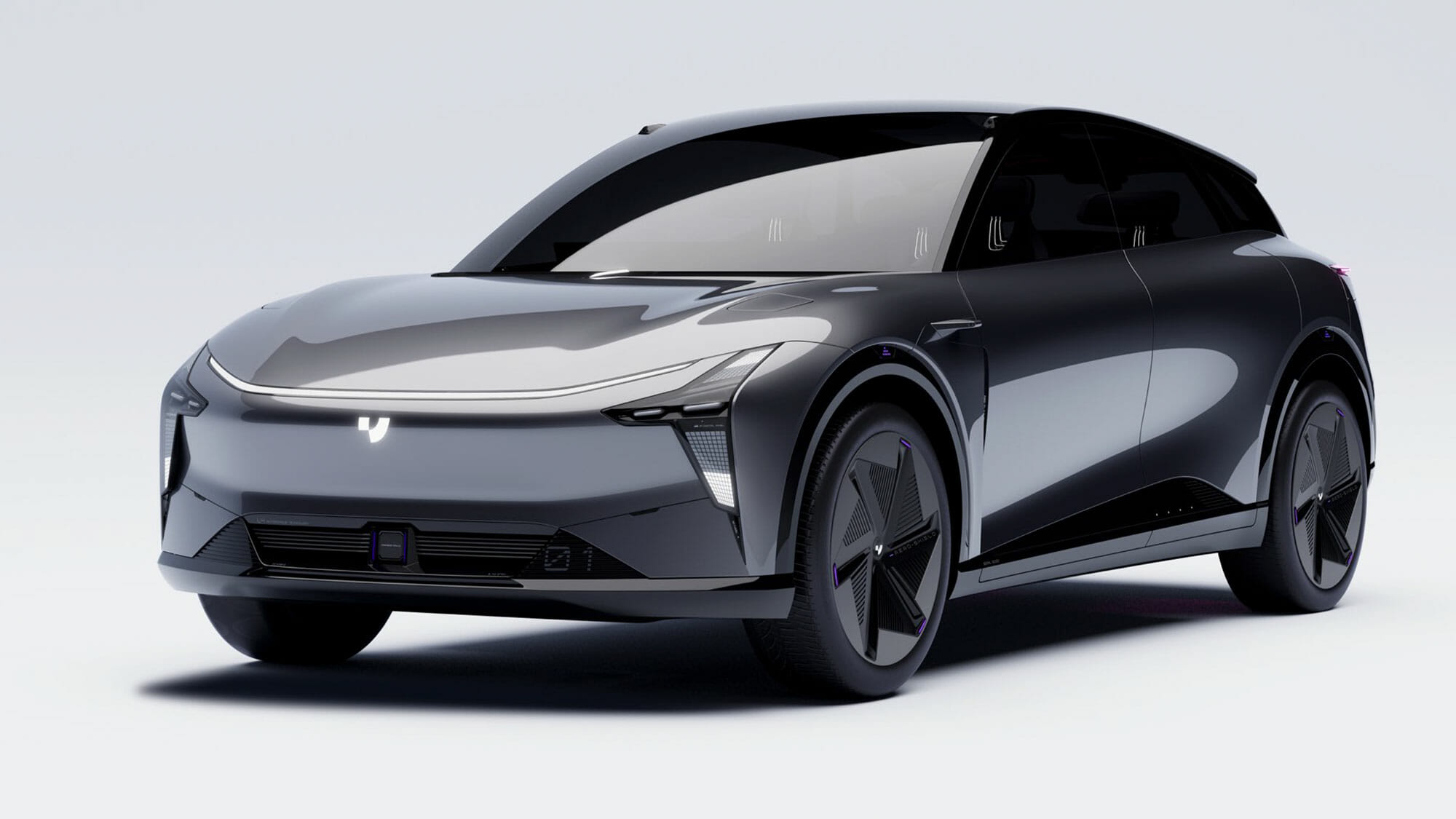
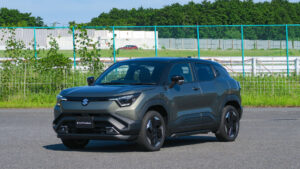
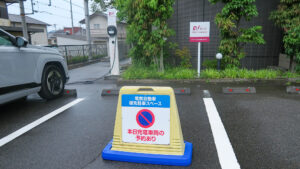
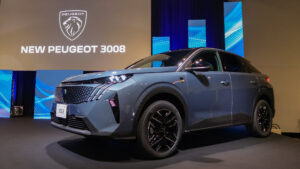


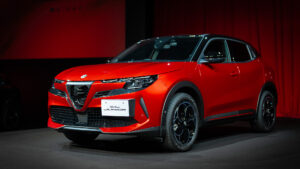
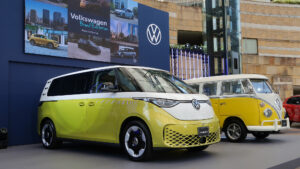

コメント